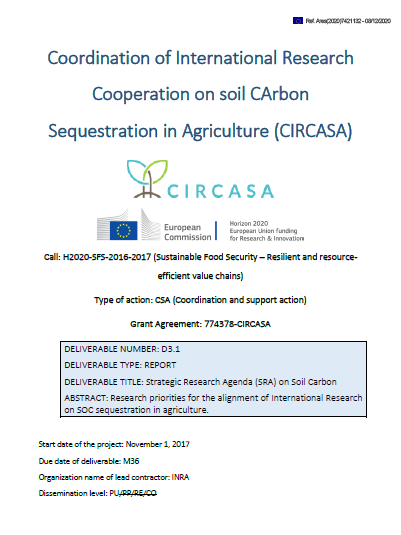Setting up and Implementing Result-based Carbon Farming Mechanisms in the EU
Technical Guidance Handbook
- Publication
- Citation
COWI, Ecologic Institute and IEEP (2021) Technical Guidance Handbook - setting up and implementing result-based carbon farming mechanisms in the EU Report to the European Commission, DG Climate Action, under Contract No. CLIMA/C.3/ETU/2018/007. COWI, Kongens Lyngby.
How can result-based payments be designed to support scaling up of agricultural practices that reduce emissions and deliver robust carbon removals? A technical guidance for setting up such payments has been published by DG Climate Action. Ecologic Institute co-wrote the guidance with its partners IEEP and COWI.
Result-based carbon farming schemes require that a direct and explicit link is established between the results delivered (e.g. GHG emissions avoided or CO2 sequestered) and the payments made to the land manager. These schemes can offer opportunities to better incentivise farmers to undertake effective climate-friendly actions, whilst giving farmers flexibility about how they achieve results.
Result-based schemes can be supported under the Common Agricultural Policy (CAP). The concept of result-based payments also underpins voluntary carbon markets and regulatory carbon-credit mechanisms. Many initiatives are also emerging where agri-food companies are designing result-based incentives to improve the climate performance of their supply chains.
The technical guidance provides critical reflections on the possibilities and limits of result-based schemes for carbon farming. The guidance demonstrates which approaches have the most significant climate impacts and co-benefits, and what kind of safeguards can avoid trade-offs with other environment objectives and climate resilience. It guides the reader through choices to be made in managing monitoring, reporting and verification, permanence risks, participant costs, and co-benefits to deliver robust climate impact. The guidance is accompanied by detailed case study examples: carbon audits for livestock and mixed farms, peatland rewetting, agroforestry, and maintaining and enhancing soil organic carbon on mineral soils.
The guidance provides insights for CAP Managing Authorities and other actors developing result-based payments. Given the limited experience with such schemes in the European context and various implementation challenges, piloting and robust testing of approaches is urgently needed.
Ecologic Institute is working on the follow-up project "Support on Devising a Carbon Removal Certification" for DG Cimate Action.




